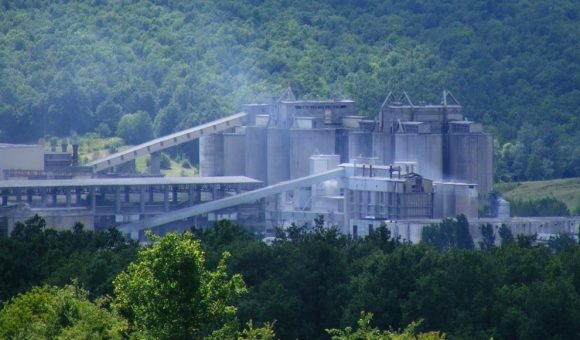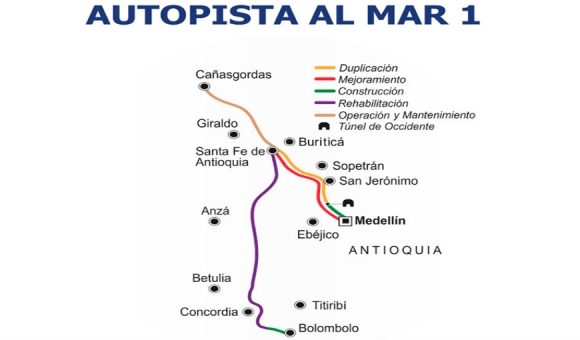USAID Projects Boost Ecological Mining, Honey Incomes for Antioquia Families

The U.S. Agency for International Development (USAID) announced September 16 that its “Oro Legal” (legal gold mining) project has been expanded to include aid to 15 apiculture (honey producing) cooperatives in the Bajo Cauca gold-mining region in Antioquia.
According to the agency, the apiculture project initially identified 56 possible candidate organizations in five Antioquian municipalities including Caucasia, Caceres, El Bagre, Zaragoza and Nechi.
From this initial group of 56 organizations, USAID then selected 15 groups dedicated mainly to bee-raising for honey production.
Initial aid to the honey producers included development of a self-diagnostic protocol, which enabled the producers to measure their administrative and organization capacity as well as evaluate the competency of their apiculture workers.
Subsequently, the project brought information and orientation to help boost installed production capacity, strengthen administrative procedures and improve capacity to launch new projects, according to the agency.
The project now aims to ensure that the cooperatives become self-sustaining and enable further economic development.
So far, the apiculture project has benefited some 700 families – 35% of which are headed by single mothers, according to the agency.
Organizations benefiting from the project include Asopibas, Acata, Peces y Cultivos, Asocuturu, Carbebias, Asjuvabc, Asigeboslu, Acomaconeba, Fibrarte, Asopisnar, Asoprocaza, Asapidemac, Asobosques, Ascabia and Asoccor, according to USAID.
“The investment in apiculture that USAID is structuring through its ‘Legal Gold’ program in the municipalities of Bajo Cauca [Antioquia] is an opportunity that can evolve into a true productive chain,” apiculture project consultant Ana Maria Castaño told Medellin Herald in an interview.
Castaño — co-author of the Antioquia apiculture-project book, Bosques Para Nuestros Hijos (Forests for our Children) – added that “efforts in apiculture that have been undertaken in the past by many institutions have had an incalculable value. Thanks to a detailed project study and diagnosis — followed by investment planning — we can now expect that this project will really improve the economy of the participating families in this sub-region.
“This will become a true alternative source of income for families in communities that traditionally have relied upon artisanal mining as their principal source of income.
“Apiculture is now part of this region. Families want to participate in this process — and ask for support. This project really can change the lives of many people in this part of Colombia, which has suffered so much” from illegal mining and the intromission of guerrilla and “paramilitary” groups, according to Castaño, who is also the president of the Sociedad Antioqueña de Ornitologia (SAO), Colombia’s pioneering non-governmental organization dedicated to wild-bird conservation.
Legal, ‘Green’ Mining Projects
On a parallel front, USAID announced earlier this month that it continues to support “Oro Legal” projects that will convert artisanal gold miners into legal gold miners in Antioquia and Choco departments.
The project unites the efforts of government institutions and miners to advise, orient and accompany informal miners in a path toward legalization. Partners in this project include USAID, the University of Antioquia, and mining companies Gran Colombia Gold, Mineros SA, Quintana SA and Minerales OTU.
Because of these efforts, Gran Colombia Gold has already obtained three operating contracts while 13 other such contracts are pending finalization, according to USAID.
Meanwhile, Quintana SAS has advanced with five subcontracts for formalization, which have been filed with the Secretary of Mines for the Antioquia Department. These five contracts are in addition to 10 more contracts being filed by Remedios Gold, according to the agency.
To date, 13 subcontracts for formalization have been submitted by the Asociación Agro Minera del Cauca (Asoagromicauca) in the municipality of Cáceres, while in the Choco Department another five subcontracts have been submitted to Colombia’s national mining agency (Agencia Nacional de Minería).
These “transcendental steps” moving small miners toward legality will permit them to work under legal mining and social-security standards — while also enabling gold processing in plants that don’t employ toxic mercury, according to the agency.
The project includes technical assistance in industrial health and security (“siso” in Spanish initials), environmental protection, and industrial management at 25 production sites licensed to Gran Colombia Gold. Twenty of thise 25 sites are in the process of legalization through the related “Bioredd+” project sponsored by USAID, according to the agency.
The “Oro Legal” project aims to legalize and formalize at least 220 artisanal mining operations in the area while supporting production of about eight tons/year of legal gold — and simultaneously eliminating the use of 55 tons/year of toxic mercury in gold production, according to the agency.
















